STUDIO FLARE, a Japanese game development studio funded by NetEase Games, is currently working on a brand-new title. Leading the studio in the capacity of COO is Toshimichi Mori, who was previously affiliated with Arc System Works and famously worked on the BlazBlue series. With a new project underway, Mori’s studio is currently looking to hire fresh talent for their future endeavors.
Though recently established, Studio Flare’s policy seems to be one of going against the trend and not bending to the will of users. At the moment, they do not have a remote work system, but why? We asked Mori all about Studio Flare’s philosophy and work culture.
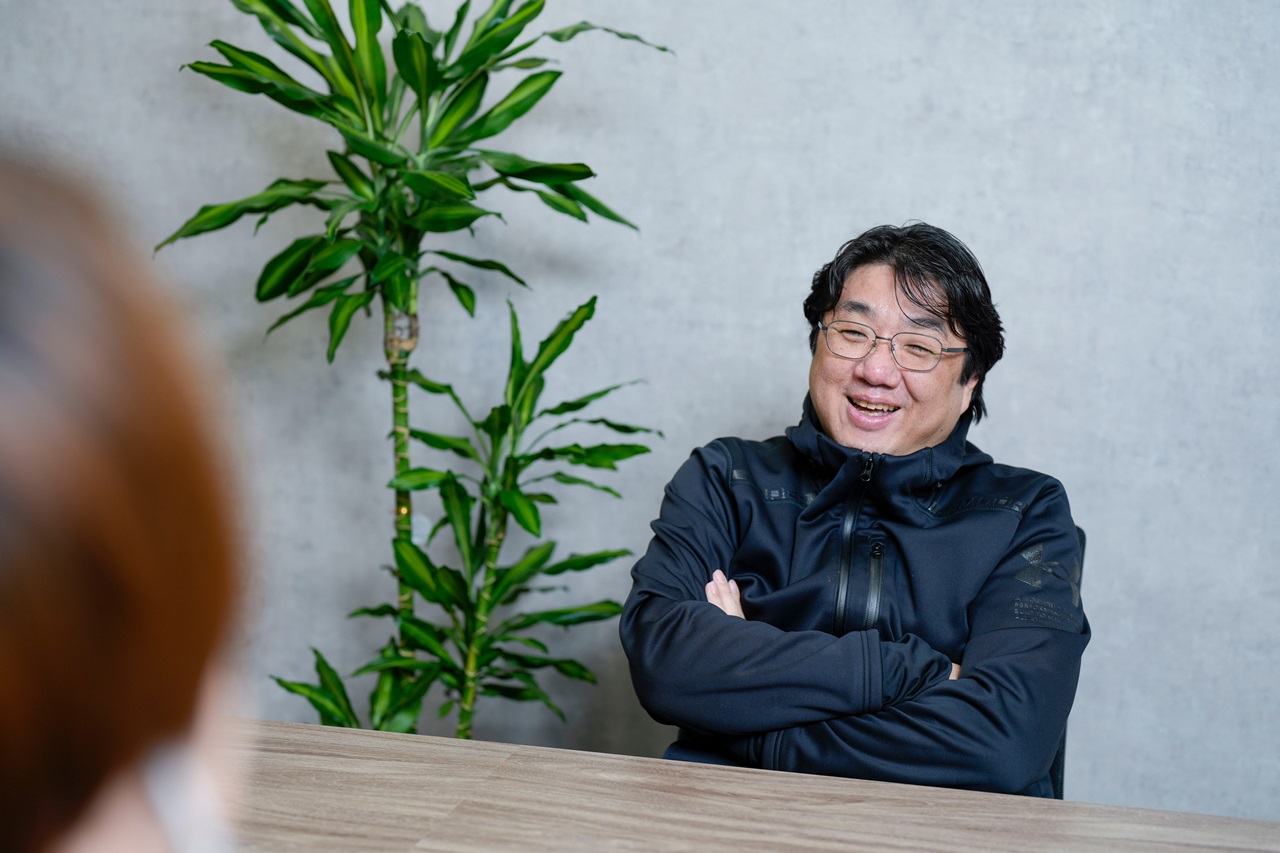
──Please introduce yourself.
Mori:
I’m Toshimichi Mori, currently affiliated with Studio Flare in the position of COO and producer. I started my career at a company called PicPac Airreal, which I founded together with four friends. We worked on the NAOMI (arcade) version of the fighting game Guilty Gear X and were also involved in the development of Guilty Gear XX and Guilty Gear XX #RELOAD.
Subsequently, I was invited by Daisuke Ishiwatari of Arc System Works to come over to Arc System and work on Guilty Gear 2: Overture. I was overjoyed at the proposal and transferred to Arc System, but for some reason, I ended up being assigned to a game called Guilty Gear Isuka. I created the characters A.B.A and Paracelsus as part of the title’s graphics team. By chance, I also ended up doing the voice acting for Paracelsus, but let’s not go into the details of that…(laughs)
After working on the background design and character design of Order Sol in Guilty Gear XX Slash, I moved onto primarily directing. I dabbled in the creation of Sengoku Basara X, and then started working on the BlazBlue series, continuing all the way until BlazBlue: Cross Tag Battle Ver 1.0.
Afterwards, I resigned from Arc System Works and launched Studio Flare.
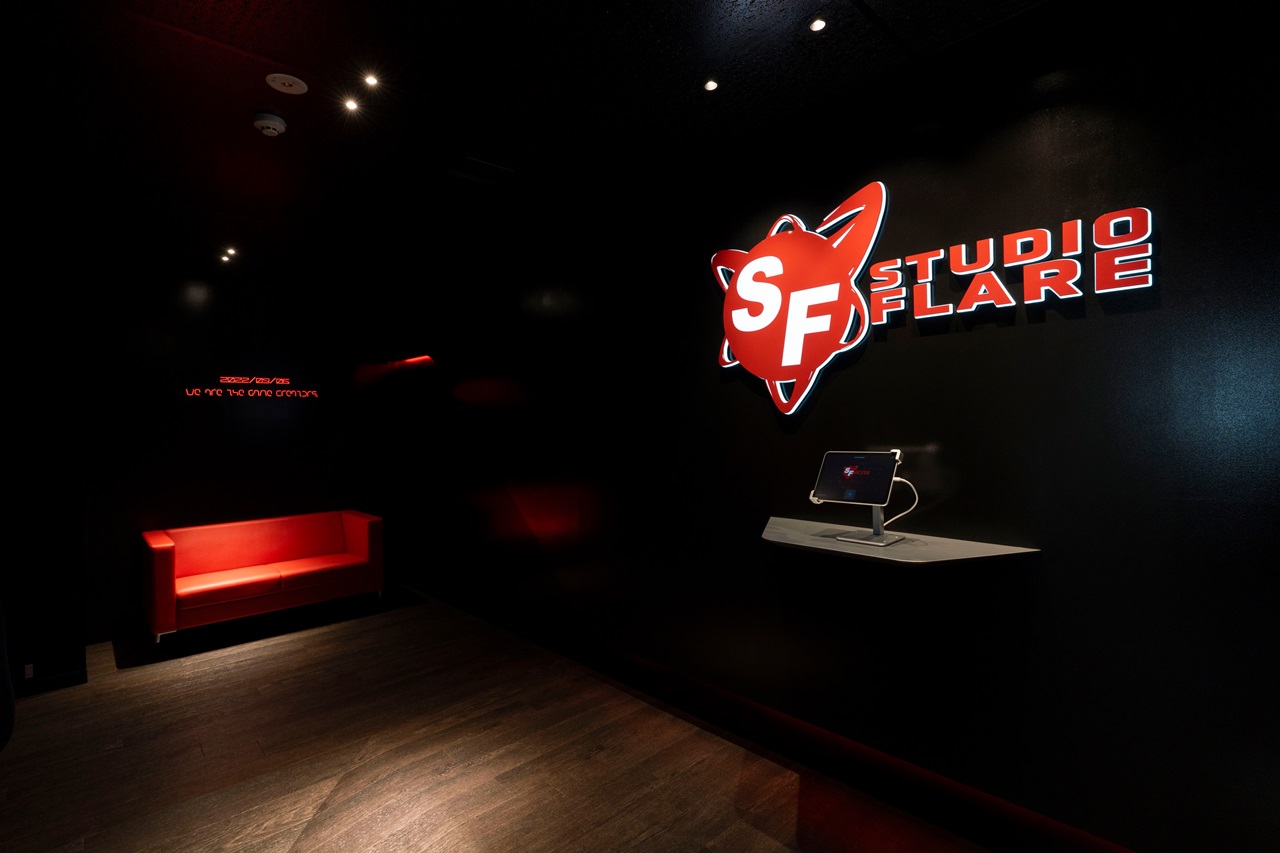
──Thank you very much. Now, Studio Flare is generally well-known as “the new studio founded by Toshimichi Mori,” but can you tell us about what kind of company it actually is?
Mori:
Studio Flare is an organization and company I established with the goal of bringing people who want to make games together to make good games. I don’t have anything difficult in mind. I just want to put aside money-making and make interesting games with others, that’s all.
──What makes a good, interesting game?
Mori:
I think that’s different for each person. There have been things which have impressed me and moved me in my life so far. I want to convey this to others and see how they react. I want people to feel the same rush I did about the things I liked.
──For example?
Mori:
For example, games that make me feel like I’m becoming more skilled or stronger. I think this is universal, but the most cathartic moment for me is when I can feel my own improvement, when I can feel things going the way I want them to. I think fighting games give this exact sensation. That feeling of “I did it!” that you experience when you start winning matches and start landing clean combos after all the practice. I think it’s no exaggeration to say that all the hard work and practice I do is just to feel that pleasure.
So, to put it another way, winning the easy way feels kind of boring. I just think the value of a victory won through hard work is much higher. More specifically, it’s “the process of improving” that’s valuable, and what I consider makes a good game.
Studio Flare is here to “impose” their idea of a good game
──It’s been about a year since Studio Flare was established. At what stage is the company currently?
Mori:
We finally have projects and scenarios being made, and right now we’re working on prototypes while expanding our team. We have a vision of what kind of games we want to make, but we’re also trying to take on some challenges, so it’s kind of a scrap-and-build process. We have some projects running in Unreal Engine.
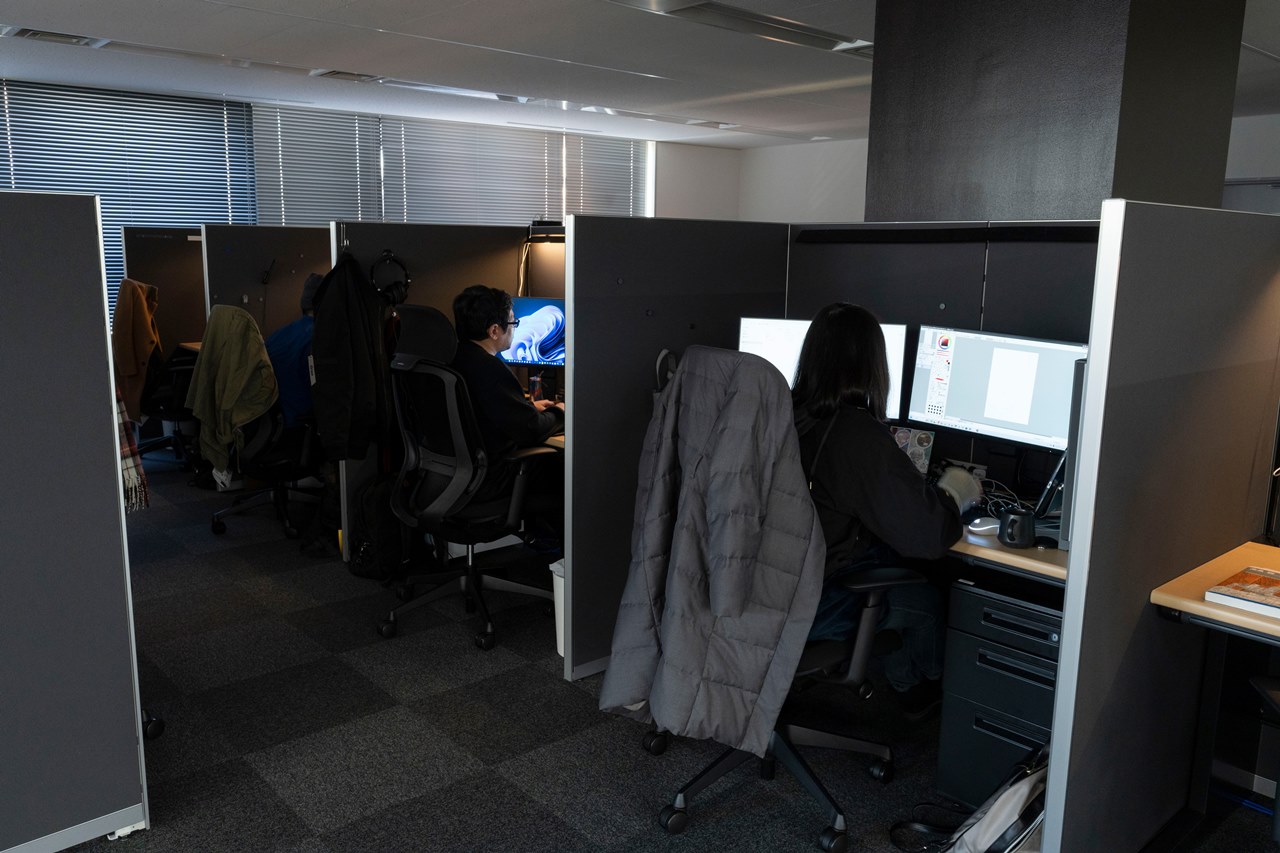
──Do you have anything to show at this point?
Mori:
We have image boards that tell a bit about what we’re working on – what we’re making and what our goals are. I’m honestly very eager to get people interested in our work.
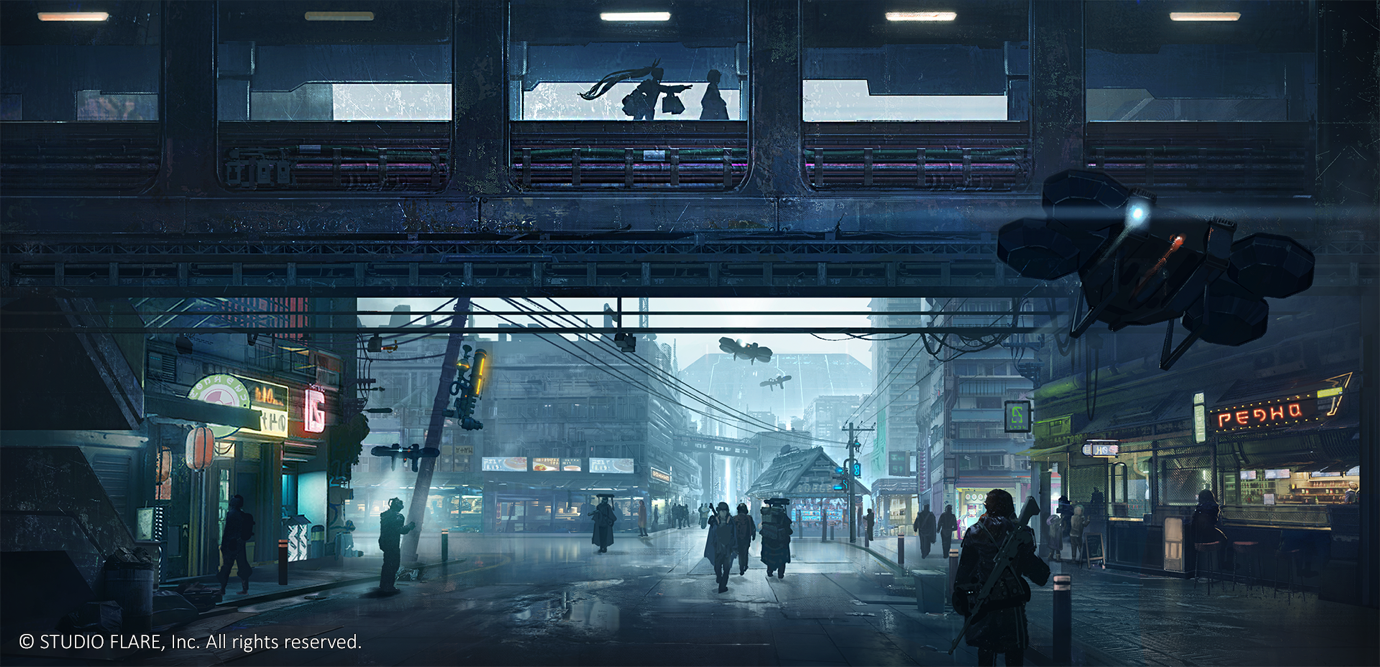

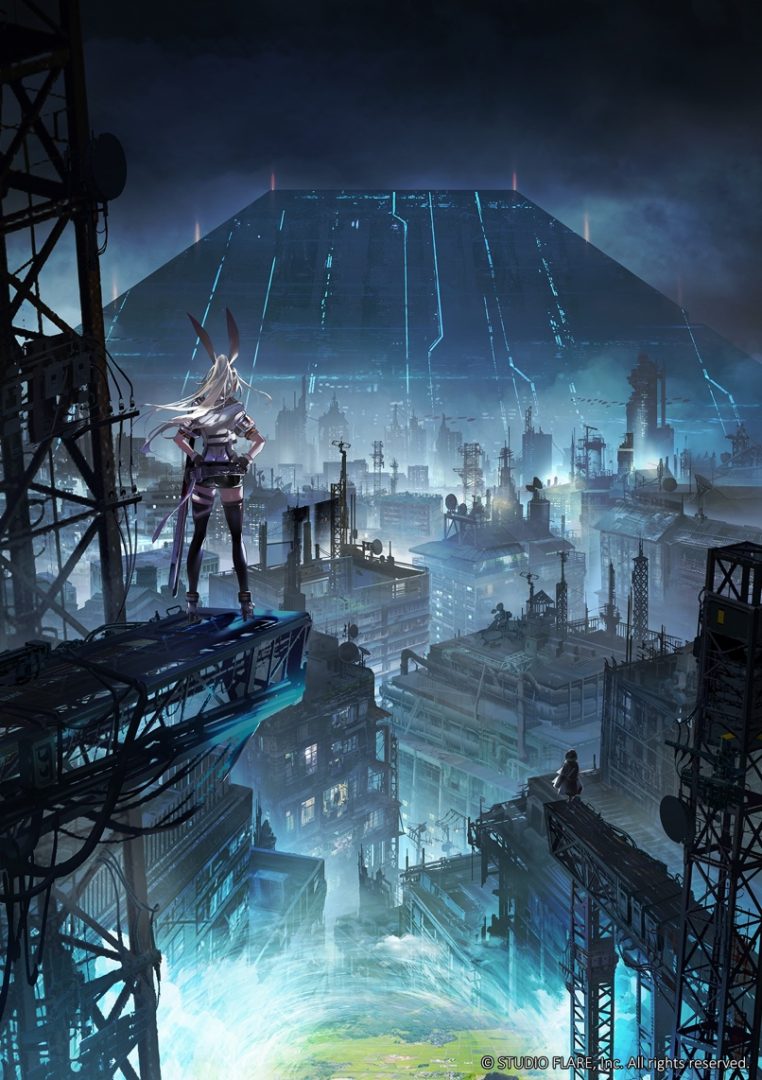
──That looks fascinating! Though, from a player’s perspective, I would like a peek at some 3D models or characters. Are you still keeping those under wraps?
Mori:
It’s still too early! (laughs) I think that, rather than showing something half-baked that’s still in progress, it’s more impactful to suddenly come out with something polished.
──Nowadays, it’s common to show in-progress maps to gauge user reactions and demands. You’re not going for that method?
Mori:
I don’t intend to do that. In general, I do think that it’s important to interact with users and create games that fulfill their wishes. However, I personally kind of want to “impose” what I think is good and what I love on others. It might be a rude way to put it, but I want to push the kind of game I like and ask people, “How do you like this??” This is the kind of company I want Studio Flare to become.
──So, even if users tell you “This isn’t what we want,” you won’t be backing down?
Mori:
Yes, If I’m already at the stage (of development) that can be shown to the public, I will not back down. If you allow too much user input while you’re still at a stage at which you can turn back, it causes confusion, and you end up losing sight of what’s correct.
I have experienced this personally. If someone touches on an aspect I’m unsure about, I lose all confidence in it. However, at the same time, if it’s something I’m sure about, I can confidently say “No, it’s good this way” no matter how much it gets criticized. While it’s important to recognize when you’re supposed to turn back, accepting others’ opinions too much in the initial stages makes you lose track of what you’re making in the first place.
I’m well aware that that I need to make games that users want in order for them to buy and play them. People have told me “you should make free games then,” and I think they’re right. However, I still want to “impose” my idea of a good game. If I were to put things more brazenly, I would say, “Please pay for my sense of value.”
──”Please pay for my sense of value” is quite the statement.
Mori:
I think that sums me up. I don’t mind any amount of complaints from people who buy and play my games, but I also want the right to convey what I think is good through my work. I want to be able to impose the things I like through my game.
Disagreements welcome, disputes also welcome (just be open to compromise)
──I understand your mindset. As you’re currently looking at recruiting new people, can you tell us about the mindset candidates should have? Also, what positions are you looking to fill?
Mori:
Right now, I’m not looking for people who just want to do as they’re told. I want people who can respond to my suggestions with their own, pointing out things like, “It would be better if we did it like this” one after another.
I want my team members to keep expressing their opinions regardless of whether they’re implemented or not. Whatever position they’re in, I want people working with me to say what they think immediately – I really don’t like situations where someone tells me, “Actually, at the time, I thought this.” This always angers me, and I can only tell them “Say so sooner!” (laughs).
──Basically, you need people who can give opposing opinions even to Toshimichi Mori.
Mori:
I welcome them. Just keep them coming. If they’re opinions that will make the game better, I’ll accept as many as I need to. Of course, I do want the people working with me to respect when a final decision has been made, otherwise it will be hard to conclude things. Other than that, I encourage differing opinions wholeheartedly, as long they’re not something impossible like suggesting a turn-based system in the midst of making an action game.
──It’s okay to disagree, but let’s have the disagreement with our goal in sight – something like that?
Mori:
Exactly like that. Studio Flare is still in its start-up stages. We just opened our offices in May 2023, and we’ve been building up our staff since then. It’s the kind of environment that makes it very easy to say what’s on your mind, and whoever joins at this point will have the opportunity to become a core member. As for particular positions, we need engineers. Having reliable graphic engineers would really mean a lot.
──Graphic engineers in particular?
Mori:
The first game we’re working on has “2.5D” graphics. You can probably tell from the image board, but the characters have an anime-like flavor, so graphic engineers with an interest in that kind of style would be very welcome. Especially those skilled with shaders.
──Something akin to a cel-shaded style?
Mori:
Yes, it’s similar to that. Recently, the graphics of overseas content have evolved so much, it’s kind of frustrating. I think that this is the moment for us to go back to learning from overseas creators, after which we can aim to surpass them once again.
I often hear from overseas creators that they love Japanese content, and I think their current high level comes from observing Japanese content and infusing it with their own improvements. Seeing this happen made me feel frustrated, which is why I felt it was worthwhile going back to anime- and cel-styles.
In the end, though, it’s not about either side’s technology being better. If I’m being honest, having so many rivals that are making great games is what vexes me, which is why I want to make better games. That’s all there is to it.
──I can tell how passionate you are. Has there been anything you’ve been itching to do since establishing the studio?
Mori:
There’s so just so many things, although there were many even before I resigned from my previous workplace. I hate when things stagnate, myself included, so I always have the desire to aim higher and higher. I’ve always loved the style of 2D anime, so this is what I want to focus on polishing right now.
Studio Flare’s work style “goes against the times.” Why?
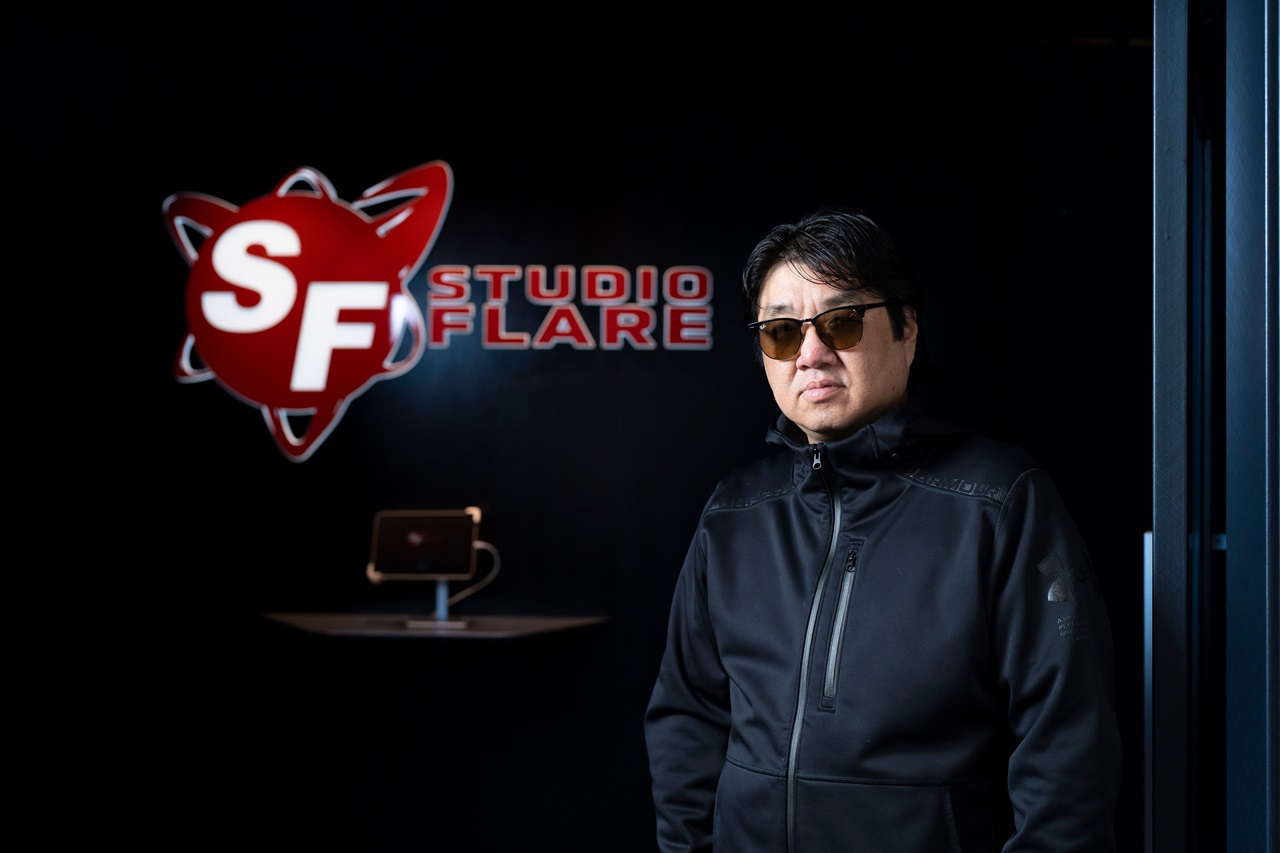
──NetEase Games supports many studios in Japan, and I feel like all of them are unique in some way. What would you say is unique about Studio Flare, aside from having you on board?
Mori:
This is something I would like to demonstrate with our finished product. After all, you can only understand how unique our visuals are if you see them. My goal is to successfully create a style of graphics that can be recognized at a glance, and for the game itself to be equally unique.
──So, on one hand, you will have the appeal of “Toshimichi Mori’s Studio,” and on the other hand, you will have a growingly recognizable “Studio Flare-like signature” in your games.
Mori:
This is what I’m hoping to accomplish. I want to reach the point where people will look at our games and say “Oh, this is Studio Flare.” In the case of Arc System Works, it was Daisuke Ishiwatari who laid the foundations, but the games became associated with the name “Arc System Works.” FromSoftware games, which I adore, are also known as “From Games.” This is why I aspire for our company to attain the level at which a term like “Flare Game” can get coined.
──Thank you. Then, what can someone joining Studio Flare gain, in terms of skills and benefits?
Mori:
I think the biggest merit in joining us is the freedom to make things the way you want to make them. It is an environment where you can easily realize your ideas, so I welcome those with ideas to come join us and express themselves to the fullest.
──I think a common and slightly unfortunate side to joining a famous creator’s studio is not being able to work on your own creations but rather having to become the creator’s “arms and legs.” What do you think of this?
Mori:
I don’t want anyone to become my arms and legs. What I want most is for my staff to come up to me and brag about what they made – this is what I would take pride in. I have no intention of being the creator of every title, and I want the staff to have something of their own that they can boast about if they decide to leave one day.
Of course, since I’m in the position of making final calls, things are bound to end up matching my tastes. However, I’m looking to change my direction, and frankly, I think that my current sensibility is a bit outdated, so I want to absorb inputs from various people.
──Thank you. I would like to ask more about specific conditions, such as benefits and similar.
Mori:
The salary and benefits, although not extremely high, are above the average for small to medium game companies. The location is Gotanda…I’m not sure if that’s considered good or not (laughs), but it is within Tokyo, so commuting is easy with the Yamanote and Tokyu railway lines nearby. The Togoshi Ginza Shopping Street is also close by, which is handy.
──I’ve heard that you don’t have the option of remote work.
Mori:
At the moment, we are not considering remote work as an option. I’m not completely denying remote work and I think it’s viable depending on the situation, but since our studio is still in its start-up phase, I want to keep things moving with everyone present and involved. So, I’m very sorry, but until the core part of our first game is complete, the plan is for everyone to commute to the office.
Also, maybe it’s just me being old-fashioned again, but I sometimes think that people tend to become detached when things are happening through a screen. It’s the same thing that can be seen on YouTube and X; like those people who are able to send abusive comments to YouTubers, even though they are just human beings doing their best to hold a stream or something. I think that happens because people’s expressions and feelings can’t be conveyed properly through a screen. I don’t want to go into whether this is good or bad, but when creating something, you have to know how the other person is feeling so that you can respond to them.
If you’re indifferent, your responses become half-hearted, and my goal is to avoid this happening, which is why I want staff to commute to the office as much as possible and get involved, rather than just perform tasks. It’s a bit against the times, but in principle, there will be no remote work.
──Indeed, if you end up in a conflict about something while at the office, it’s much easier to just go over to the other party after a meeting and resolve things. Whereas online, things just get cut off, and the other party can just choose not to respond.
Mori:
That’s exactly what I mean. If you’re face to face, you can tell if you need to apologize, whether the other person is unhappy. It’s much easier to have a conversation when you can read the mood.
I think that, if you want to call yourself a creator, you need to be able to create while being conscious of people’s feelings. Of course, a game can be all about your own feelings, but I think game design is about making decisions while asking yourself the question “how will users feel about this.”
──So, avoiding remote work is a way to ensure proper discussion. By the way, in a past interview with Famitsu, you mentioned that, in exchange for requiring staff to commute, you will ensure that the work environment is as comfortable as possible by making individual spaces and whatnot. Have you been able to realize this?
Mori:
I think we have. In principle, work spaces are individual, so people can work without being seen by others. Everyone’s using the walls to paste all kinds of notes, which I enjoy looking at.
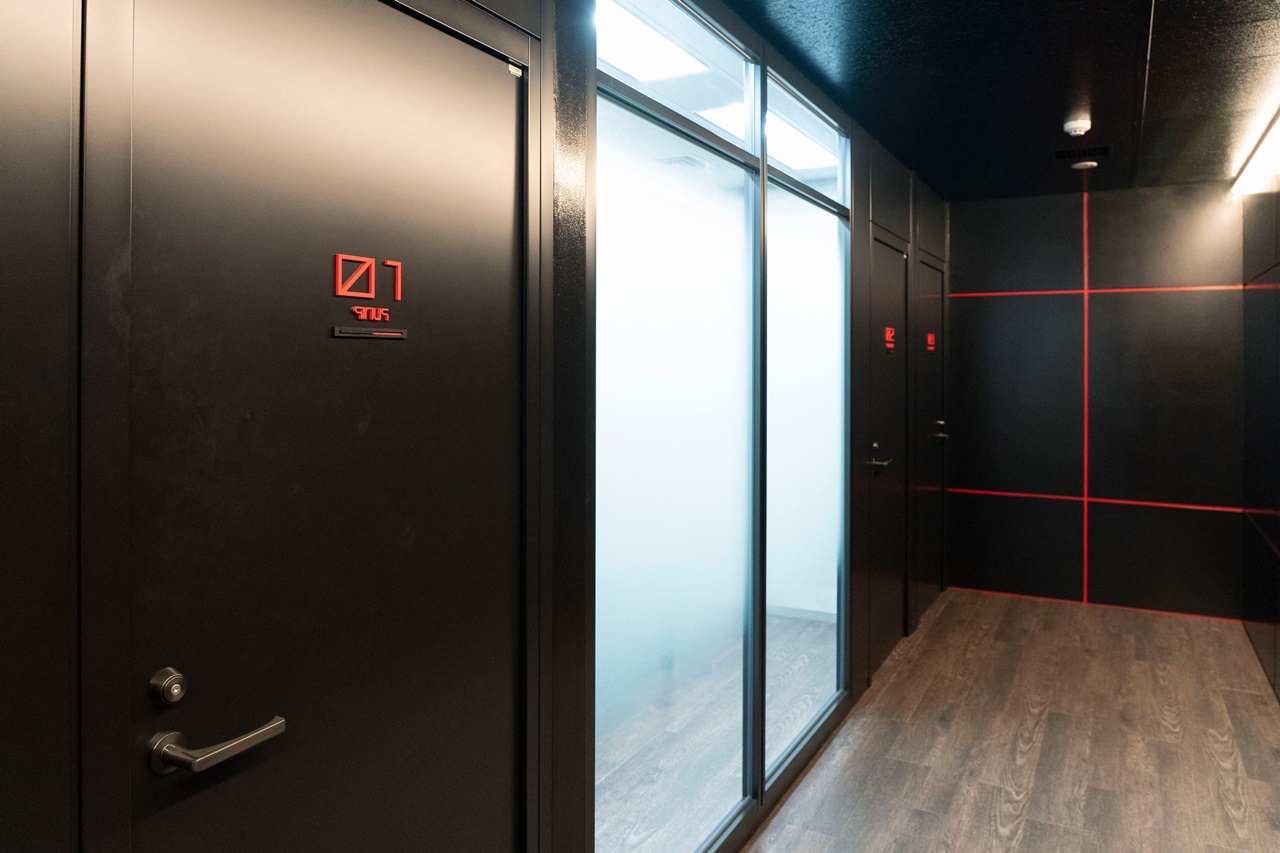
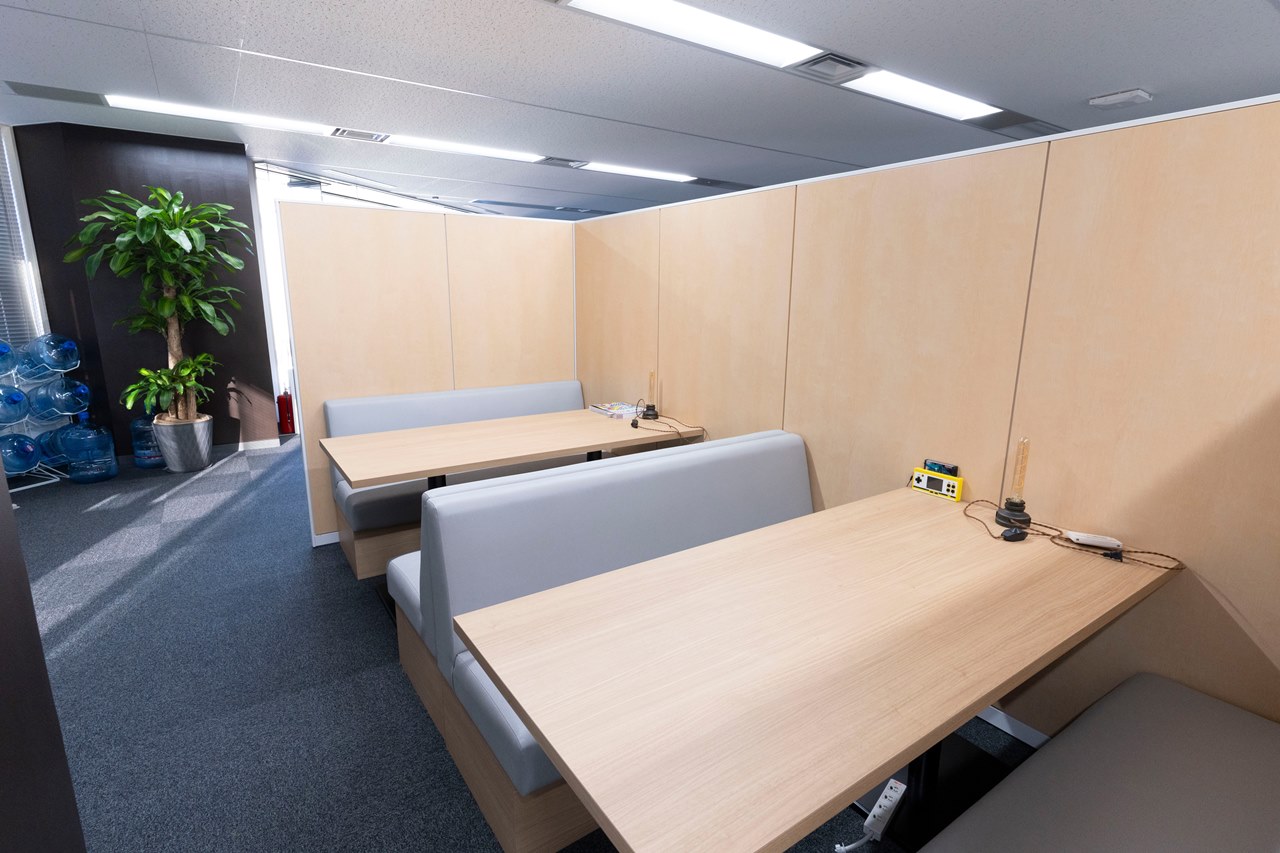
──I think we’ve heard a lot of interesting information here. Do you have any message to readers who are considering applying for your studio?
Mori:
I’d just say, “Come make games with us!” I think that’s much better than trying to make things sound pretty. Also, if you want to shock the world, by all means join us. I think we can make a game that will attract attention, so now’s your chance to be involved. I want to make games through heated discussions.
──Thank you for your time.
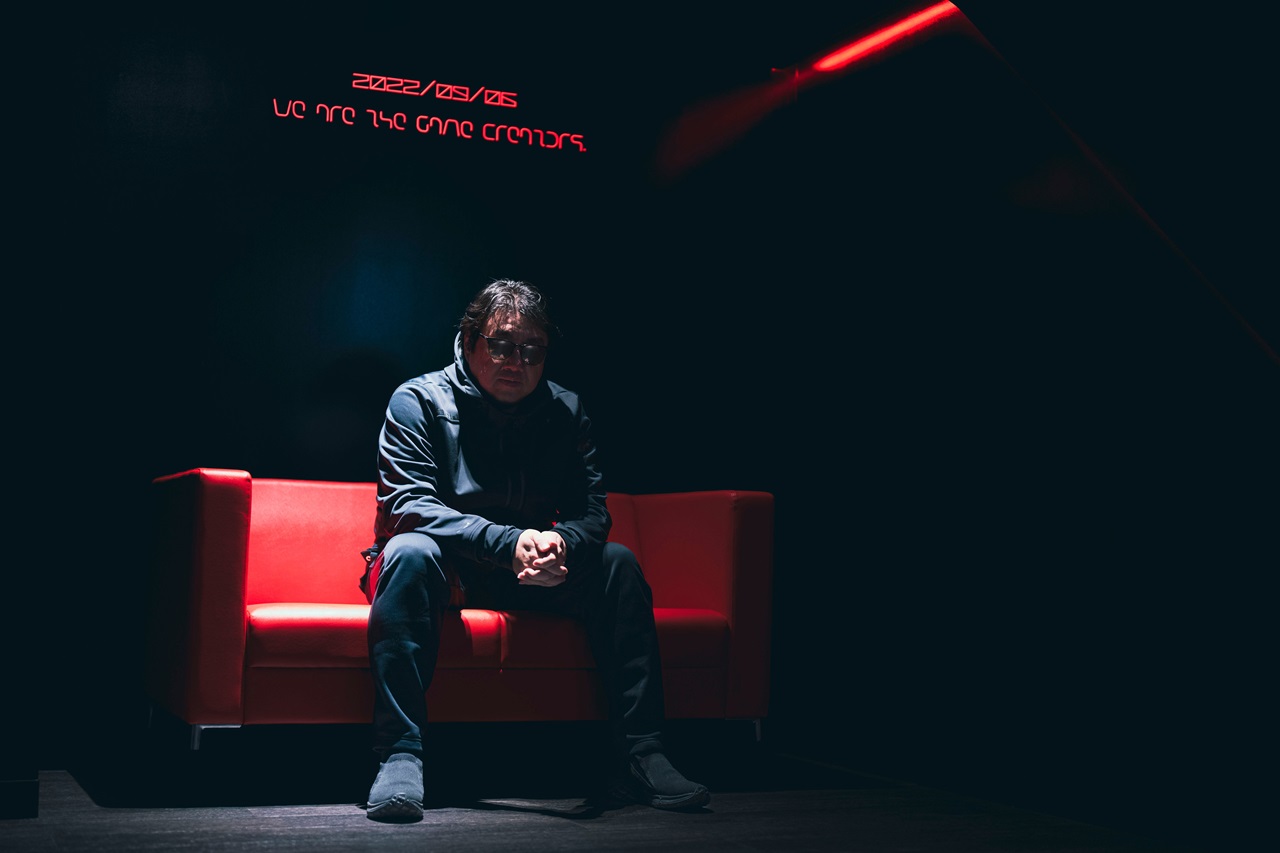
Writer, editor: Yusuke Oizumi
Photography: Maho Ikemi
Inetrviewer, editor: Ayuo Kawase
Translator: Amber V

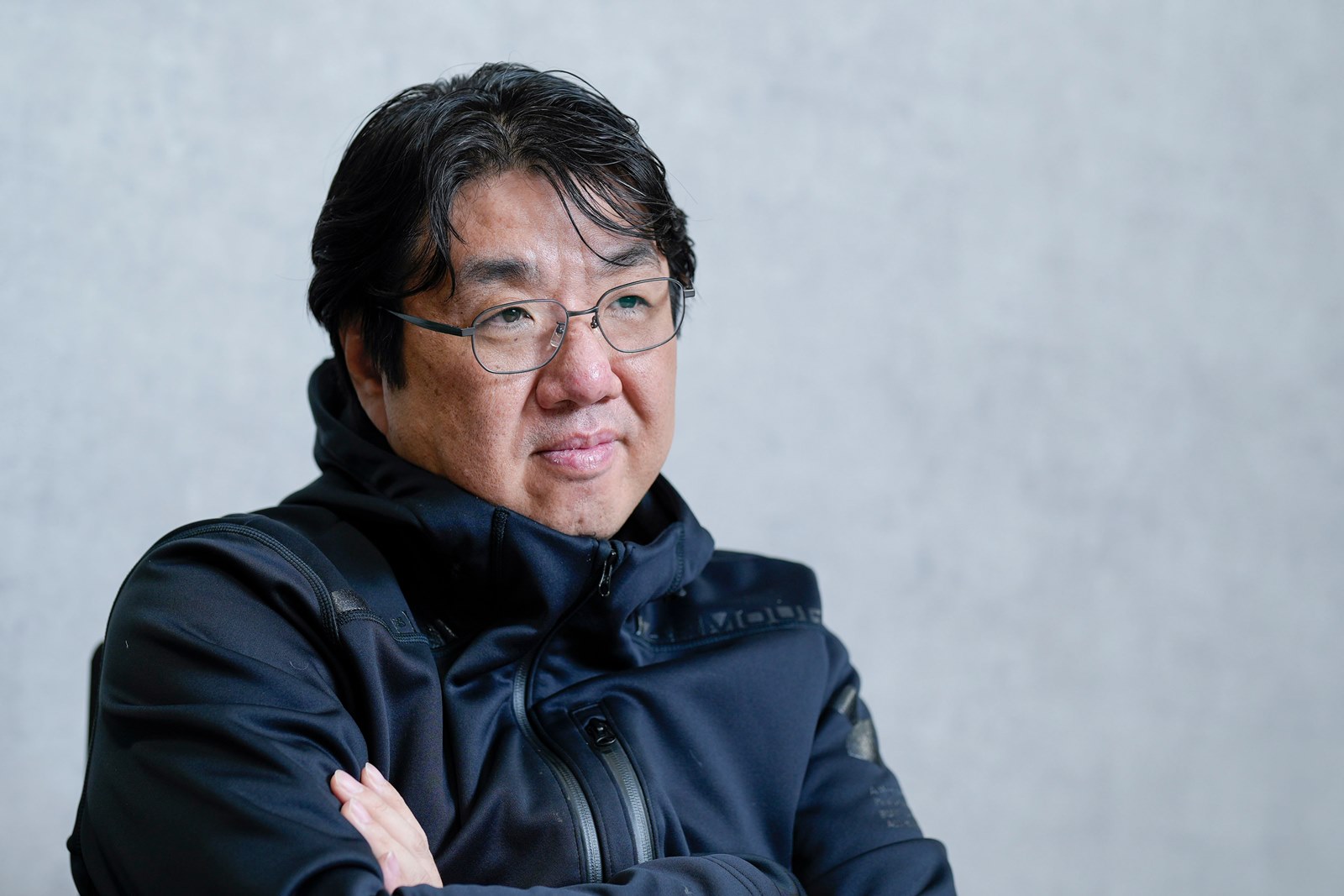

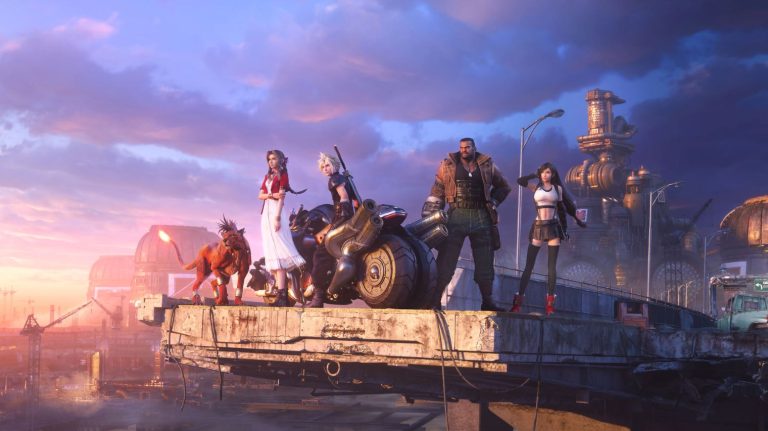
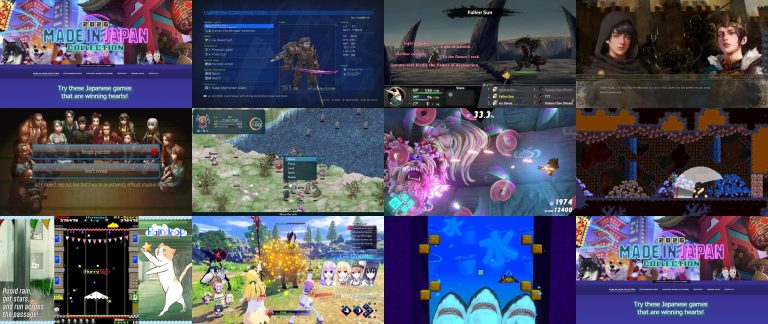
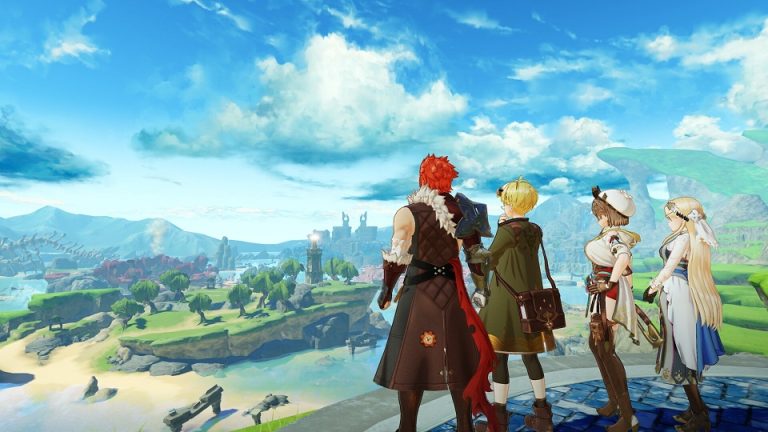
he did the samurai kyo ps1 fighting game!